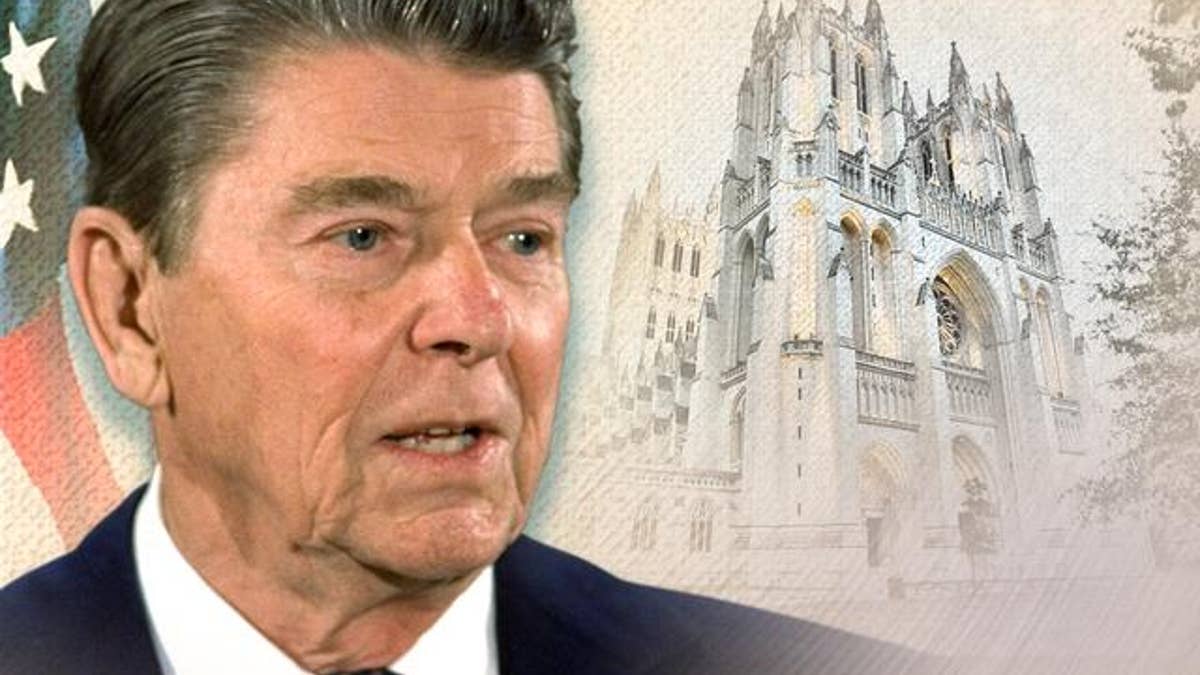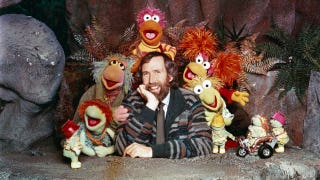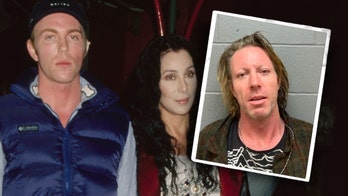
President Ronald Reagan. (AP)
President Ronald Reagan is getting a lot of attention across the United States this week, including a special video tribute during the Super Bowl, as the country honors the centennial of his birth.
In conjunction with the commemorations, Eugene Jarecki’s new documentary “Reagan,” which explores the “glamorous leading man with the common touch,” debuts on HBO Monday night. Jarecki told FOX411 that most Americans will probably be surprised to learn about the “real” Ronald Reagan, a man he feels is quite different from the one portrayed by the media and history books.
“On all sides of the political spectrum, Americans are greatly misled on who exactly Ronald Reagan was. He is one of the most used and abused figures in American history because many people find it politically convenient to wrap whatever their own privately held agenda is in his wonderful glow and his great personality," Jarecki said. "We are led to believe that Reagan stood for many things that, in many cases, are not the case at all. The real surprise in the film is just that the real Reagan so defies the stereotypes that are cast around him today.”
Jarecki hopes his documentary clears up some misconceptions many have about the 40th President of the United States.
“One of the great myths about Reagan was that he was an amicable dunce – a guy that floated his years throughout the White House and was just the puppet of smarter men. That could not be farther from the truth from what I saw in getting to know Reagan very intimately through the footage and interviews that I did with people who knew and loved him and worked with him, and also people who were very critical of him,” Jarecki said. “He was a shrewd thinker in many ways, and far smarter than people gave him credit for. He was also a man with blind spots and shortcomings. But the idea that he was just a figurehead and not the driving force of his presidency is to not understand that he was really the driving force of a massive life that began with small town roots and ended up in the most powerful office in the world and arguably one of the greatest presidential legacies in the world. That did not happen by accident.”
Interestingly, Jarecki also told FOX411 he didn't think doesn’t Reagan, an advocate of limited government, would necessarily approve of the Tea Party, a vocal proponent of limited government. Why? Namely, the issue of immigration.
“The Tea Party is very strongly anti-immigration, and Ronald Reagan was the complete opposite of that,” Jarecki said. “Reagan publicly declared his support for amnesty, I have clips of it in my film, and while doing so, he also signed a bill that gave 2.6 million immigrants amnesty while he was in office.”
Of course times have changed in the past 30 years. For example, in Reagan's era, third parties were of little consequence. John Anderson was the most notable when, having lost in the GOP primaries, he left the party to run as an independent against Reagan and President Carter, garnering just 7 percent of the vote in the 1980 presidential election.
"Reagan" features interviews with many of the President's confidantes, including his White House chief of staff James A. Baker, senior advisor Pat Buchanan, speechwriter Peter Robinson, and CIA operative Frank Snepp. Reagan’s sons Michael and Ron Jr. also lend their insights into their larger-than-life father.
“He wanted to save America, America needed rescuing and he was the one to do something about it,” Ron Jr. says in the film, adding that his mom, Nancy Reagan, was the crucial factor in his success as she longed to be First Lady just as much as he longed to be President.
Unlike the producers behind The Kennedys," who had their miniseries dumped by the History Channel before it wended its way to its final home on the ReelzChannel, Jarecki said he had no problem finding a network to air "Reagan."
“From the start, everyone saw Ronald Reagan as such an extraordinary and relevant person in all of our American conversations today. But it was imperative from the beginning that we had full control of the material and that there not be some private interest of any kind of corrupting how the film was made,” Jarecki, a self-confessed “Eisenhower Republican” added. “I believe Ronald Reagan, who was deeply committed to public policy and its improvement, would want no less than real, fair and thorough journalism. I don’t agree with him on everything, and I don’t disagree with him on everything, but I can sense the seriousness with which he approached public policy in his life, and I hope this film is consistent with his spirit in that way.”














































